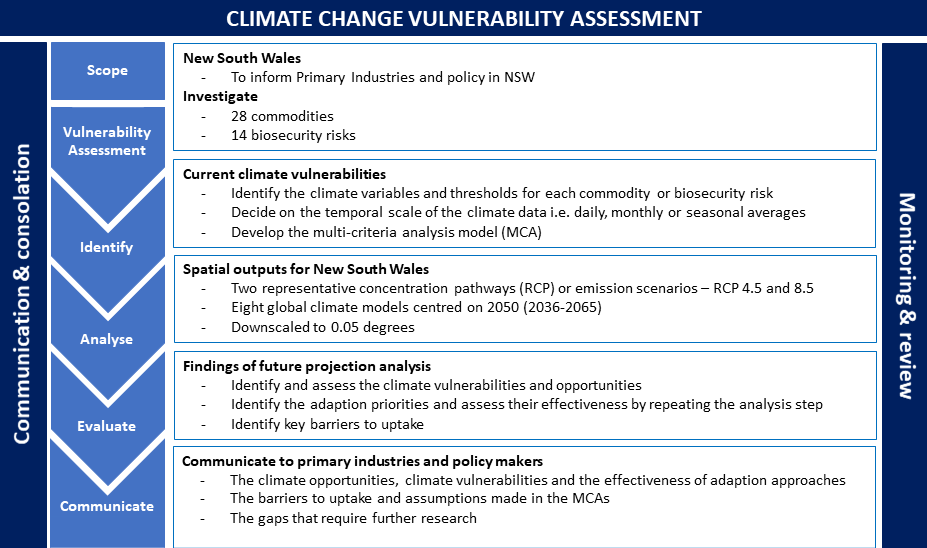Project 6: Vulnerability assessment
Understanding climate risks and opportunities for primary industries
The changing climate brings with it risks for primary producers in New South Wales and, possibly, new opportunities. Primary industries need information about these risks and opportunities to guide planning for the future. Through a consistently applied approach, with consultation and review by industry, the Vulnerability Assessment analyses potential climate change impacts and adaptation strategies for a range of primary industries in New South Wales.
The Vulnerability Assessment has two key objectives for primary industries in New South Wales:
- To improve the understanding of climate change risks and impacts
- To provide evidence of the value of adaptation strategies to reduce the identified climate impacts
These objectives are addressed through a two-stage assessment. The first stage is assessing the impacts of climate change on the selected commodities and related biosecurity risks. The second stage assesses the value of adaptation through the modelling of key adaptation strategies targeted to the major impacts.

The Vulnerability Assessment project analyses impacts and adaptation for 28 commodities across cropping, extensive livestock, horticulture and viticulture, forestry, and fisheries. The project also analyses the impacts of climate change on 14 related biosecurity risks.
Our approach is based on applying a standard methodology across all commodities and biosecurity risks to enable comparisons between commodities and with the related biosecurity risks. The assessment is conducted across New South Wales and aims to inform strategic industry planning and policy. The project relies on the expertise of collaborators across the Department of Primary Industries and industry to develop and inform the climate impact assessment for the 28 commodities and 14 biosecurity risks.
For more information: Vulnerability Assessment Factsheet
Contact us
For information about this project please email:
Dr Joanna Pardoe | Technical Specialist - joanna.pardoe@dpi.nsw.gov.au
For additional information about the Climate Change Research Strategy please email climatechangestrategy@dpi.nsw.gov.au